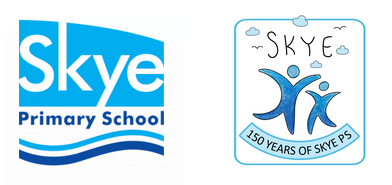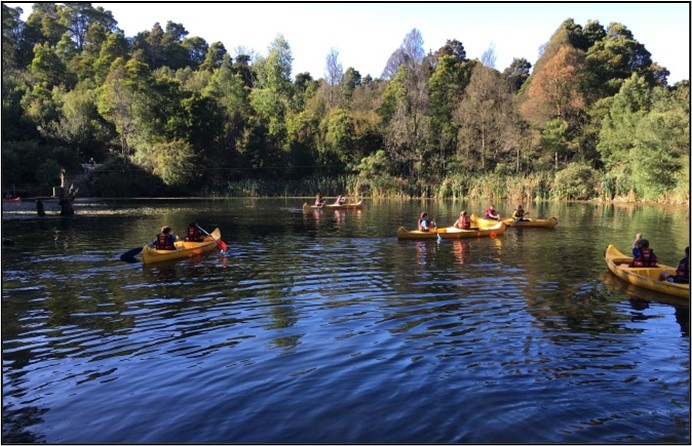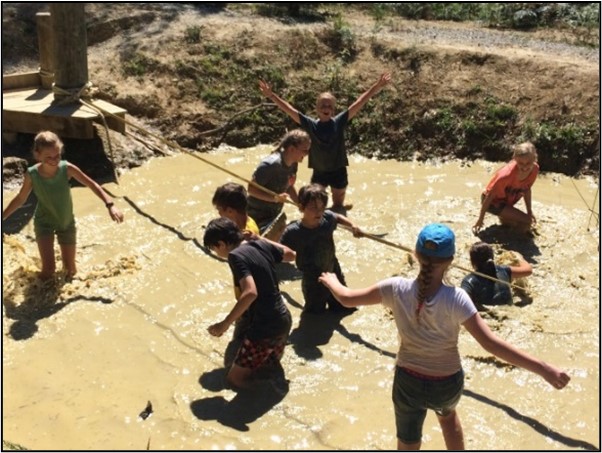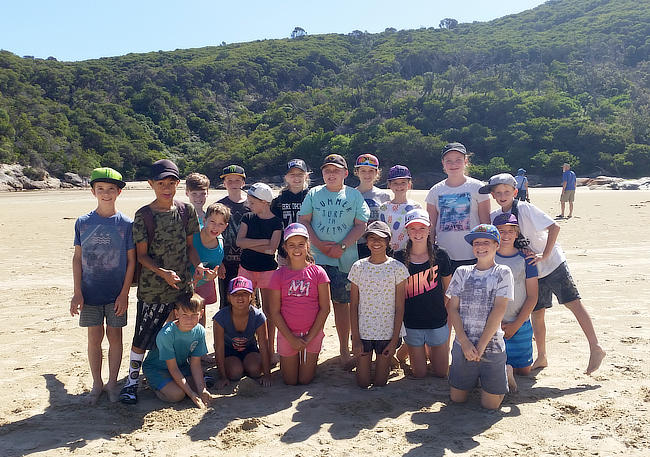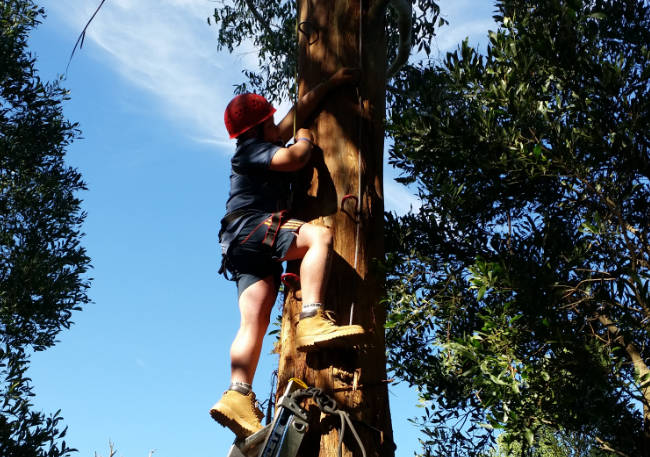Student Learning
Overview
Skye Primary School provides high quality instruction and learning programs with the aim to provide every child the opportunity to develop to his/her maximum potential in a supportive yet challenging environment.
Our school and teachers set high expectations and standards and strive to meet the individual learning needs of all students. Our teachers consider the knowledge, interests and abilities each student brings to the learning context, the skills and content taught from the Victorian Curriculum, how we can best support our students to learn (individual, cooperative groups, small groups and whole class instruction) and the ongoing assessment strategies that help inform the teaching and learning cycle.
It is important to us to provide a safe and secure learning environment for all of our students. We foster learning environments that support our students to think critically and creatively, to develop positive problem solving skills, and to be engaged in their own learning from Prep to Grade 6.
Literacy and Numeracy
Literacy
Our mission is to cultivate a thriving learning environment where every child develops a deep understanding and love for reading and writing. Our approach to literacy is rooted in the latest research and best practices, ensuring that we provide the highest quality education to our students.
Embracing Structured Literacy
At Skye Primary, we are committed to the continuous improvement and adoption of best practices in literacy instruction. Our approach is centred around Structured Literacy, an evidence-based framework that applies the Science of Reading (SOR) in the classroom. This method has been recognized for its effectiveness in teaching reading and writing by incorporating all critical components of literacy development, including decoding, encoding, and language comprehension.
The Foundation: The Science of Reading
Structured Literacy is the embodiment of the Science of Reading, an accumulation of high-quality research on how students learn to read and write. This approach is designed to ensure that all children, regardless of their learning style, can achieve literacy proficiency. By focusing on phonology, morphology, orthography, syntax, semantics, and discourse level language, we provide a comprehensive literacy education that is explicitly, systematically, and cumulatively taught.
Our Literacy Program: The 5 Pillars of Literacy
Our literacy program is built on five essential components, each integral to the development of proficient readers and writers:
- Phonemic Awareness and Phonics: Recognizing the importance of phonics in the early years, our program utilizes the Little Learners Love Literacy Scope and Sequence and Decodable Readers. This provides a structured and engaging foundation for reading, writing, and spelling.
- Morphology: Starting in Year 3, we introduce morphology to further enrich our students’ understanding of the structure and meaning of words, transitioning from phonics to a more comprehensive exploration of language.
- Fluency: We emphasize the development of fluency, ensuring students can read smoothly, accurately, and with expression. This is crucial for fostering reading comprehension and engagement.
- Vocabulary: Robust instruction in vocabulary is provided to enhance students’ communication skills, both verbally and in writing, enabling them to access and participate in academic discourse effectively.
- Comprehension: The ultimate goal of our literacy program is to equip students with the skills to decode text, understand its vocabulary, and critically engage with its content, fostering a lifelong love of reading.
Little Learners Love Literacy
Our use of the Little Learners Love Literacy program from Foundation to Year 2 underscores our commitment to a structured synthetic phonics approach. This program is not just about reading and writing; it incorporates games, crafts, music, and more to make learning engaging and enjoyable for our students.
Why Our Approach Matters
Our structured approach to literacy from the earliest years ensures that every student, especially those at risk of literacy difficulties, receives the high-quality instruction they need to succeed. By focusing on explicit, systematic, and cumulative instruction, we prepare our students to engage with complex texts confidently and competently.
Numeracy
Our vision for mathematics education is to ignite a passion for learning through an engaging, challenging, and enjoyable curriculum. We believe that confidence, curiosity, and critical thinking are the cornerstones of mathematical learning, and we strive to instill these qualities in our students as they navigate through the fascinating world of numbers.
Our Approach to Mathematics
At Skye Primary School, we approach mathematics with a deep commitment to developing a robust understanding of the fundamental ‘big ideas’ that form the foundation of all mathematical concepts. These big ideas serve as the pillars of our curriculum and include-
- Number Sense: Cultivating an intuitive understanding of numbers and their relationships.
- Place Value: Understanding the value of digits based on their position.
- Multiplicative Thinking: Grasping concepts of multiplication and division as foundational to understanding mathematics.
- Fractional Thinking: Developing an understanding of fractions and their role in mathematics.
By focusing on these core concepts, we aim to create a cohesive and comprehensive learning experience that connects various mathematical ideas into a unified whole.
Developing Proficiencies in Mathematics
Our curriculum is designed to develop four key proficiencies in mathematics that are essential for the growth and development of our students:
- Fluency: Building speed and accuracy in mathematical calculations.
- Understanding: Deepening comprehension of mathematical concepts and their applications.
- Problem Solving: Encouraging the application of mathematical knowledge to solve real-world problems.
- Reasoning: Fostering the ability to think logically and make reasoned arguments.
Through a blend of explicit teaching and engaging problem-solving scenarios, we challenge our students with tasks that are not only relevant to their lives but also encourage them to apply their knowledge in creative and innovative ways.
Encouraging a Mathematical Mindset
Our mathematical problem-solving tasks are carefully crafted to:
- Promote Choice and Agency: Students have the freedom to select their problem-solving strategies, demonstrating their thinking and engaging with tasks at their level of comfort and challenge.
- Ensure Accessibility for All: Tasks are designed with a ‘low floor, high ceiling’ approach, making them accessible to all students while providing ample opportunities for extension.
- Foster Justification and Reasoning: Students are encouraged to justify their thinking and reason through problems, both independently and in collaboration with peers.
- Enhance Connections and Creativity: By requiring students to synthesize multiple pieces of information and draw connections between different concepts, we nurture their ability to approach problems creatively and with curiosity.
Inquiry Learning
At the heart of our educational philosophy lies the commitment to nurturing effective lifelong learners who are well-equipped to thrive as productive members of both the local and global community. Through inquiry, we explore the breadth of the Victorian Curriculum and aim to empower students with the knowledge, skills, and dispositions necessary for self-directed learning, social development, and active, engaged citizenship as outlined in the Victorian Curriculum.
Developing 21st Century Learners
In today’s rapidly evolving world, preparing students to be 21st-century learners is more important than ever. At Skye Primary School, our Inquiry curriculum and teaching practices are designed to:
- Encourage Collaborative Learning: We believe that learning is a collaborative endeavour. Our curriculum fosters environments where students work together, share ideas, and build knowledge collectively.
- Build Strong Relationships: Creating strong connections between students, and between students and teachers, is fundamental to our approach. These relationships support a rich learning environment where all members feel valued and supported.
- Promote Critical and Creative Thinking: We challenge our students to think deeply and creatively, encouraging them to question, analyse, and innovate.
- Nurture Connected Learning Communities: Our school is a place where learning extends beyond the classroom. We connect with our local community and engage with global issues, preparing students to be active participants in the world around them.
- Maximize the Use of ICT: In our commitment to fostering creative thinking and problem-solving, we integrate contemporary technologies across our curriculum, enabling students to learn through and create with digital tools.
- Develop Interpersonal and Personal Learning Skills: Success in the 21st century requires more than academic knowledge. We place a strong emphasis on interpersonal and personal learning skills, such as resilience, empathy, and self-awareness.
- Foster Active Citizenship: Our curriculum encourages students to become involved in their local communities and to engage with global issues, fostering a sense of responsibility and a desire to make a positive impact.
Inquiry Learning from Foundation – Year 6
Our Inquiry Learning journey begins in Foundation and continues through to Year 6, providing a scaffolded approach to learning that evolves with the developmental stages of our students. This journey is designed to:
- Develop Values and Dispositions: We aim to instil values that foster respect, empathy, and a commitment to fairness and equity.
- Cultivate Independent Learning Skills: Encouraging students to take ownership of their learning is a key objective. We support them in becoming curious, self-motivated, and reflective learners.
- Prepare Confident and Creative Individuals: By providing a supportive and challenging environment, we help students to build confidence in their abilities and to approach problems with creativity and innovation.
- Create Active and Informed Citizens: Our curriculum is designed to prepare students to participate actively and responsibly in their communities and the wider world.
Specialist Programs
Specialist Programs at Skye Primary School
At Skye Primary School, our Specialist programs provide students with rich and engaging learning experiences that foster creativity, critical thinking, and a love of learning. Our Specialist teachers create dynamic, hands-on programs that encourage students to develop new skills, collaborate with their peers, and explore their passions
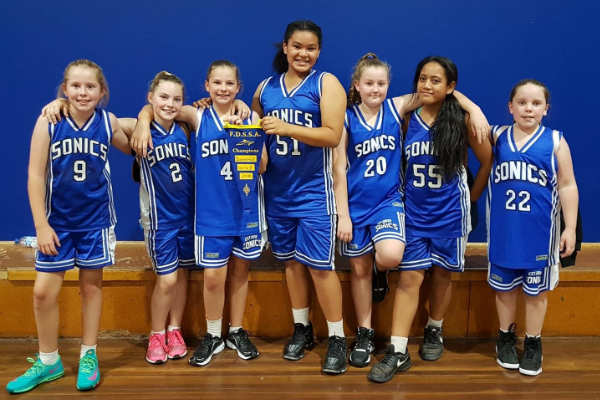
Physical Education
Our Physical Education program promotes active and healthy lifestyles, helping students build fundamental movement skills, teamwork, and sportsmanship. Through a variety of sports, fitness activities, and games, students develop coordination, resilience, and a lifelong appreciation for physical activity. We encourage participation, personal growth, and the enjoyment of movement, with opportunities for students to represent the school in interschool sports and carnivals.
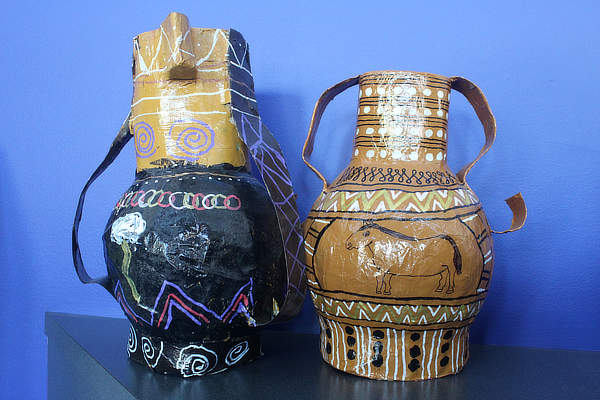
Visual Arts
Creativity is at the heart of our Visual Arts program. Students explore a wide range of artistic techniques, including painting, drawing, sculpture, printmaking, and digital art. They learn to express their ideas and emotions through art while developing an understanding of artistic styles and cultural influences. Our program nurtures curiosity and imagination, celebrating each student’s unique artistic journey.
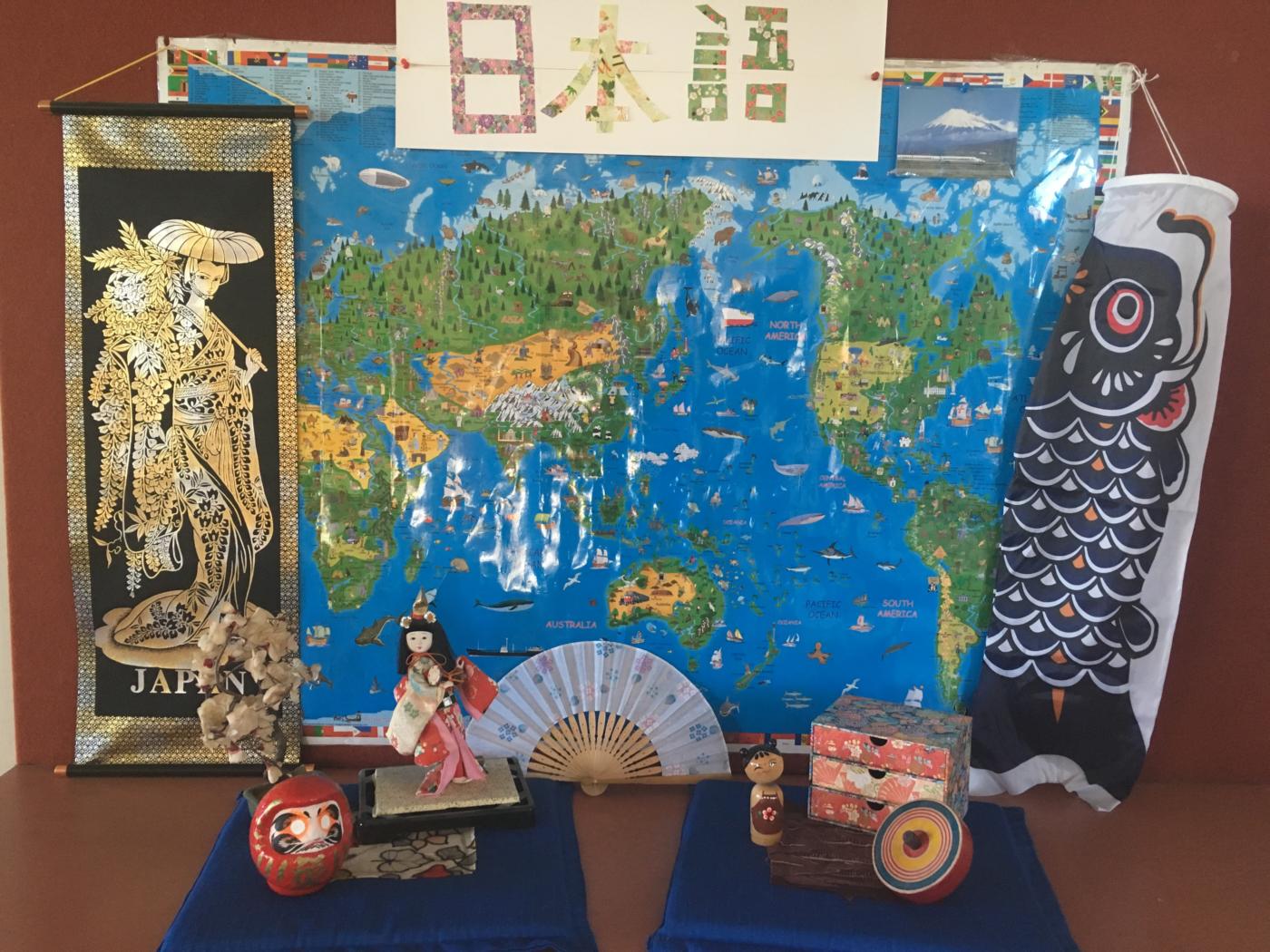
Japanese
Students at Skye Primary School learn Japanese through an immersive and interactive program that builds language skills and cultural awareness. They engage in speaking, listening, reading, and writing activities, incorporating songs, games, and storytelling to make learning fun. Our program fosters a global perspective and appreciation for Japanese traditions, language, and customs.
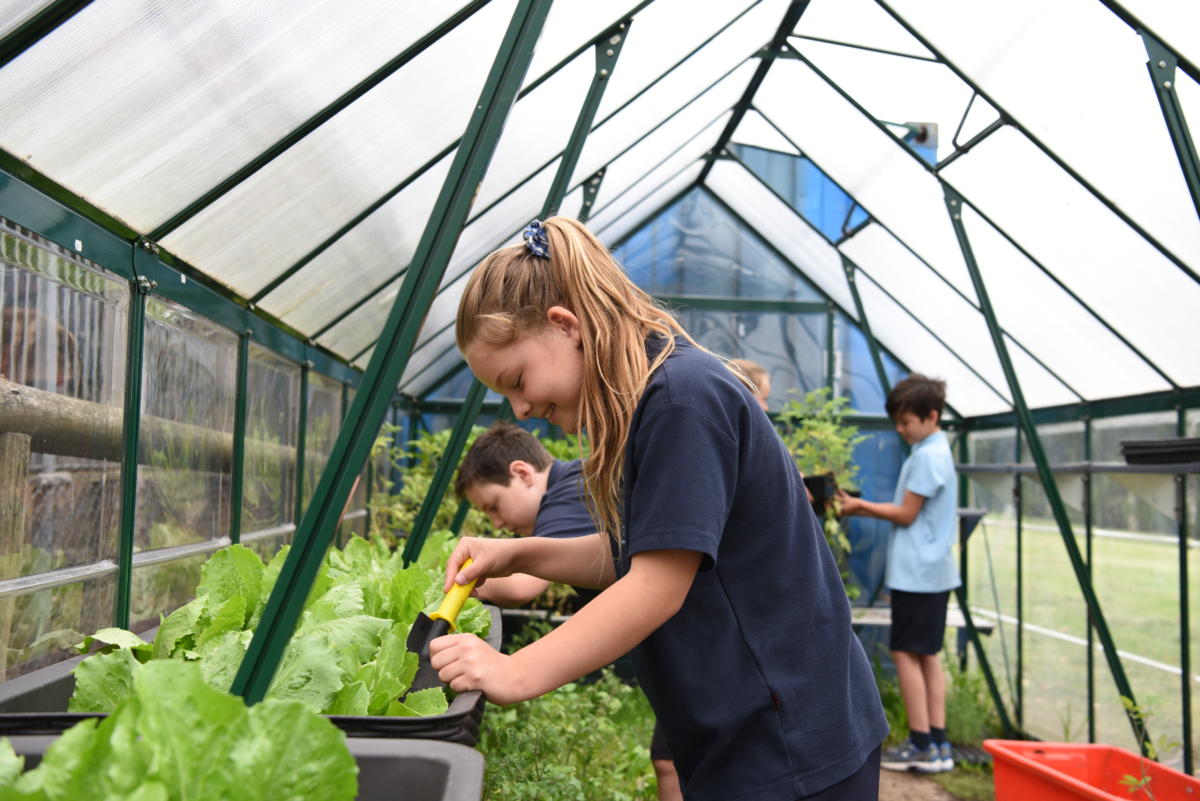
Kitchen Garden
Our Kitchen Garden program provides students with the opportunity to cultivate, harvest, and cook fresh produce. Through hands-on gardening and cooking experiences, students learn about sustainability, healthy eating, and the natural environment. The program promotes teamwork, responsibility, and a connection to the food we eat, fostering a lifelong appreciation for growing and preparing nutritious meals.
STEAM
STEAM (Science, Technology, Engineering, Arts, and Mathematics)
STEAM at Skye Primary School encourages students to think critically, solve problems, and innovate. Our program integrates Design Technology and Food Technology, giving students hands-on experience in designing, building, and experimenting. From coding and robotics to cooking and sustainable practices, students explore real-world applications of science and technology in an engaging and practical way.

Music
Our Music program provides students with opportunities to engage in singing, instrumental music, rhythm, composition, and performance. Through engaging lessons, students develop musical literacy, confidence, and a love for creative expression. Whether playing instruments, learning about different musical genres, or performing in concerts, students experience the joy of music in a supportive and inspiring environment.
ICT
As a tool to support learning, ICT plays a major role in all areas of the curriculum. Skye Primary has laptops, iPads and interactive whiteboards to provide flexibility in learning approaches in a range of settings.
Extra Curricular
A range of activities or programs are offered to enhance students’ experiences at school. Some of the extra-curricular activities include, but are not limited to:
- Camping Program (Year 3-6 camps)
- Somers Camp
- Gymnastics
- Archery
- Swimming
- Skye Footy League
- Skye Big Bash League
- House Athletics
- Skye Sonics Basketball
- Lunchtime Activities
- Instrumental Music
Camping Program
Grade 3 to 6 students typically participate in a camp program, offering a rich variety of experiences in outdoor skills. The camps give provide an opportunity to expand on the usual curriculum by providing wonderful opportunities for social, emotional and personal growth for the children. The school is currently revising the camp program by offering overnight stays to students in Years 5 & 6 and trialling day camps and onsite experiences that will assist our Grade 3 & 4 students to prepare for camps later on.
Student Voice
We value our student’s voice and recognise the importance of encouraging our students to shape their education by engaging and participating in their learning, and actively contributing to decision making processes by influencing and putting forward their views, concerns and ideas. Student voice allows our students to engage, participate, lead and learn throughout their educational journey at Skye Primary.
Student Leadership Council
At Skye Primary School our students have the opportunity to be a part of the Student Leadership Council (SLC) where they can help shape our school and develop positive relationships with the broader community. The Student Leadership Council has been a part of the following:
- Leading school assemblies
- Presenting student awards
- Public speaking opportunities
- Introducing guest speakers and conducting school tours
- Assist in fundraising
- Representing our school at the Seaford RSL for ANZAC Day services
- SLC members are used actively in seeking feedback from our students in how we can improve our school
Student Representative Council
Skye Primary School also supports active Student Voice through our Student Representative Council (SRC).
Our SRC is made up of our School Captains, SLC Members, and Class Representatives from Years 4 – 6.
Our SLC works together actively enabling a broad view point from our student body. This council actively contributes to decision making processes and influences outcomes within our school by stating their views, concerns and ideas.
House Captains
At Skye Primary School our Grade 6 House Captains are actively involved in supporting, encouraging and leading their school House Teams – Webb, Waugh, Freeman and Thorpe.
Our school enjoys a wide variety of House Sporting opportunities throughout the year, including our highly successful Junior House Sports activities and 3 – 6 House Sports Day.
